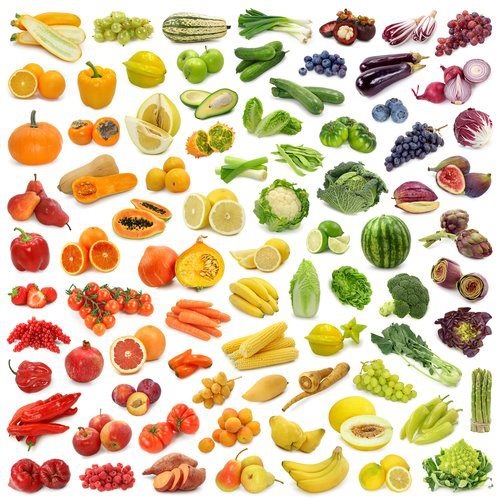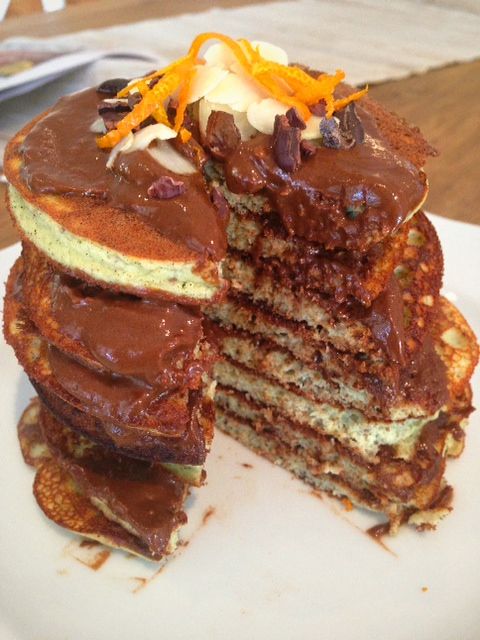Ask The Sprout: Q&A #1
I took to my social media platforms to see what Q's you wanted A'd, and here's what you guys came up with!
Q: I get really itchy skin after I shower. I thought it was from hot water or just having sensitive skin, but I've heard a lot of talk lately about sulfates in body products/shampoos. Is this what I'm allergic to? Are there any natural, good shampoos out there?
A: You're right in that having the water too hot in your shower can cause itchy skin (and dehydration/flaky patches). Sulfates are basically detergents used in products to strip your skin of dirt (well, everything...including its natural moisture) and also as foaming agents, so they can be very drying and irritating on your skin especially if you've already got sensitive skin. Generally, anything that foams isn't the best option for dry or sensitive skin - you're better off with a cream-based formula and even better if it doesn't contain sodium lauryl sulfate, which is the main offender. You mentioned you already use Lush and The Body Shop products. Hmm, have you tried Lush's solid shampoo? I've found them to be gentle on my dermatitis-prone skin. They do contain sulfates and perfumes, however, but are much more gentle than supermarket brands. You might be responding to the fragrance and alcohols in the products you're using. In terms of body products, these are some brands I've really liked that have gentle ingredients and are fragrance-free and/or designed for sensitive skin: QV, Sukin (check out their soap free body wash which is sulfate and paraben free) and MooGoo (which was made for eczema sufferers and has products to cover you head to toe). If you're finding you have areas that appear to look like a rash of red, flaky dry skin that itches still, you might want to chat to a GP or dermatologist as it could be dermatitis. Usually dermatitis can be treated with ultra sensitive moisturisers (Neutrogena's Norwegian Formula Hand Cream) and topical hydrocortisone creams.



Q: What is this kale everyone is talking about?!
A: Kale is the veg of the century it seems! It's related to broccoli and cabbage and the type we get most of in Australia is green (or sometimes purple!) with very curly leaves. The stalks are tough and bitter, so we just eat the leaves. Kale is an awesome source of calcium, fibre and vitamins A & C - there's even a hefty dose of protein, too. I like to use the leaves shredded in stir fries, or "massaged" with some olive oil and salt in salads (the massaging helps soften the leaves so they're not so chewy and bitter). I also make kale chips - just rip the leaves off the stalk in chip-sized pieces, pop in a bowl and spray with oil, toss to coat (along with any spices you'd like), chuck on a baking tray in a 190 degree oven for 10-15 minutes and Bob's your uncle.

Q: Do you know much about eating raw or 80/10/10 eating?
A: I know a little, but not a lot, about both. I've enjoyed lots of raw food and am stoked that more raw options are springing up around Perth! For those who don't know, raw food isn't just salads, but basically anything that hasn't undergone "cooking" in high temperatures therefore the integrity of the nutrients is maintained. Some foods are "sprouted" - soaked in water for long periods to improve the availability of ezymes - and there are lots of quirky fake-outs like cheese made from cashews and "pasta" from zucchini. Is it good for you? Yes. Can it be bad for you? Yes. Well, only if you indulge in too many raw treats that are normally high in fructose and fats (from things like dates and nuts). Better than a Mars Bar, but the "everything in moderation" rule should still apply. Do I advocate a 100% raw diet? No. But then again, I don't believe any one diet should be followed 100% or any food groups completely eliminated ;) There is also some quite convincing research out there showing some vegetables, like broccoli, are actually more nutritious when lightly steamed.
The 80/10/10 diet is a variation of raw foodism where you get your nutrients from carbohydrates, protein and fats in an 80:10:10 ratio respectively. To me, it looks like a very strict vegan diet that has been popularised by celebrities, Olympic hopefuls and the media (ooouch). Even doing a wee bit more research rung alarm bells. While it includes a stack of wonderful fruit and vegies and other natural ingredients, I think a majority of people would feel extremely exhausted due to the minimal protein. It surprised me that it was popular with athletes - while the carbohydrates give them the energy to perform, there just doesn't seem to be enough protein to maintain or build muscle. I'd give this diet a miss, or if you need some structure to make sure you eat more fruit and veg, just make 2 days a week your 80/10/10 days, with the others including other carbohydrate, protein and fat sources.

Q: Would love some quick and easy gluten free recipes!
A: Every recipe on this blog is gluten free...and generally quick and easy haha. Check out my Recipes tab :) Let me know if you want to transform a gluten-tastic recipe into something kinder to your gut!

Q: Breakfast is usually the problem in our house, so any easy yet affordable recipes for uni students?
A: My baked eggs are good if you've got canned tomatoes and/or beans - you can prep them the night before then pop them in the oven in the morning while you have a shower. Also, either grab cheap fruit and veg from the markets or look for the produce that is just about to turn and is on sale at the supermarket. Chop them up and freeze them in bags then add milk or water to a blender in the morning for a green smoothie. Quinoa flakes can be expensive but you don't need much of them to fill you up, so they tend to last a while! You could make quinoa porridge with tinned fruit (in water, not syrup) - good for protein! Frozen veg are also great to put in frittatas (which can be made then frozen), just make sure you defrost and drain them first. If you like sweet brekkies, you can save some money by buying older fruits, or cheap in-season fruits, then stew them with stevia and serve them warm or cold with some yoghurt and nuts. Stewed fruits keep longer than fresh, and can be frozen for later!

If you have a question, get in touch!
Please note: I am not yet a qualified nutritionist, personal trainer or life coach and while I answer to the best of my ability based on my own research, education, experiences and knowledge, please chat to a pro if you're concerned about your health.


